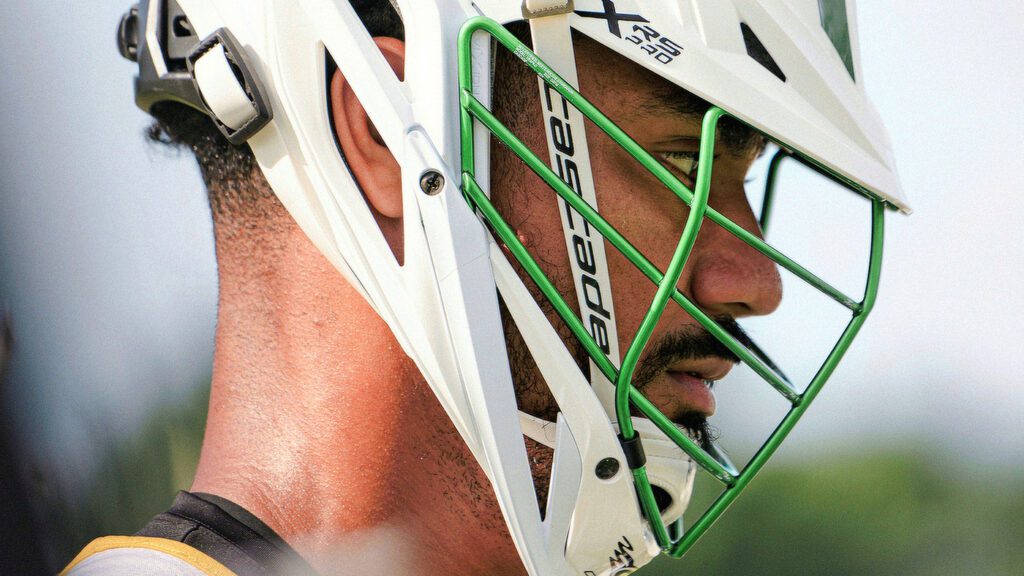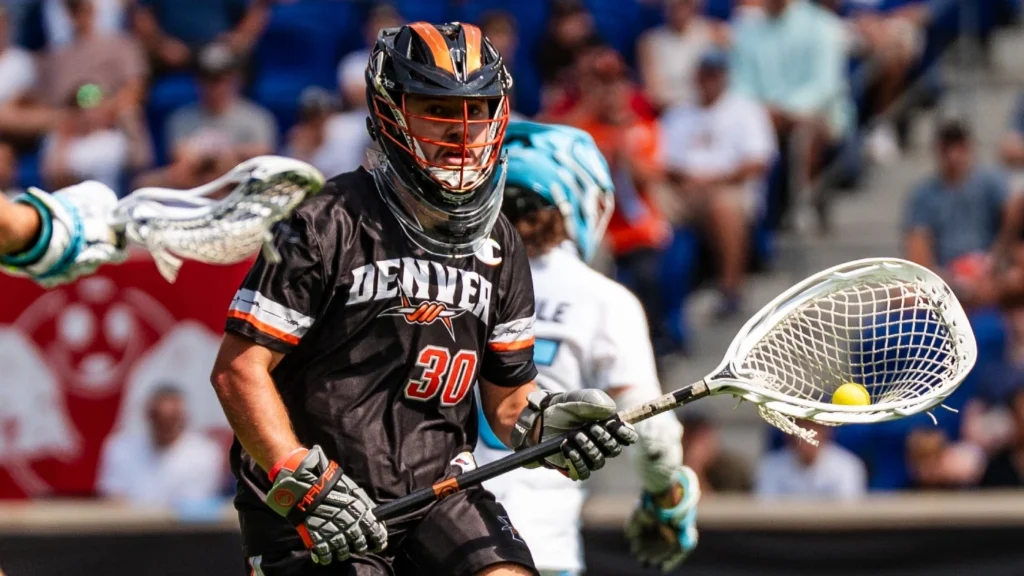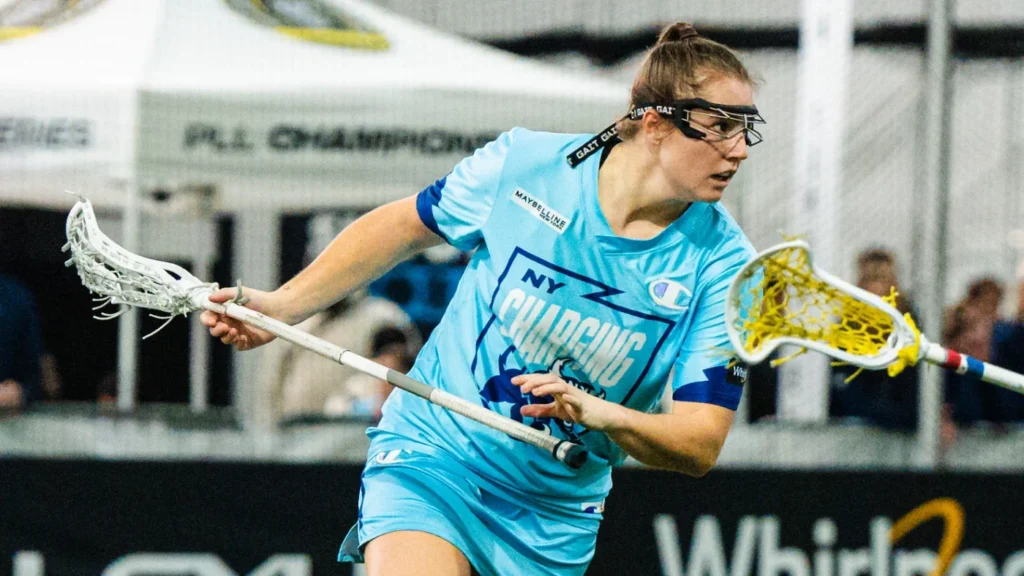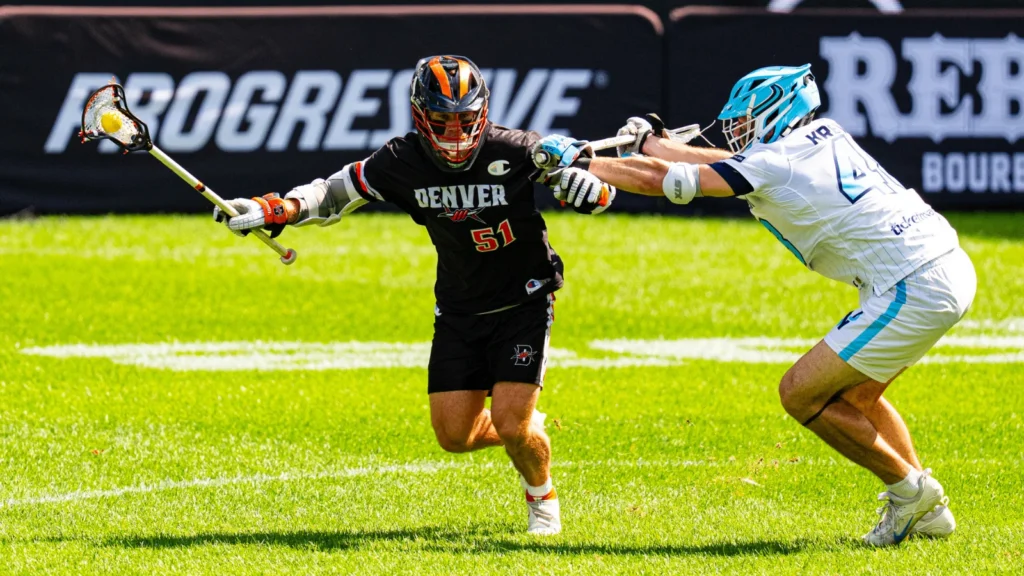
How Romar Dennis is discovering purpose helping grow lacrosse in California
By Jerome Taylor | Jul 26, 2024
California, and Los Angeles in particular, has quite the reputation for being a region of transplants, where people go to find new experiences and follow their dreams. Early in the Premier Lacrosse League’s history, Romar Dennis became another one of those people who moved westward.
Five years ago, during the league’s inception, Dennis was among the ranks of lacrosse players, including Kyle Hartzell, Joe Walters and the late Callum Robinson, to move to California.
“Just being from southern Maryland and going to Loyola and staying in Baltimore for a year and a half after, I was just like, ‘Am I going to spend my whole life here? … If I ever want to live elsewhere and experience anything else, I might as well do it now,’” Dennis said about the move.
Dennis was also enticed by the opportunity to be closer to the then-brand-new PLL headquarters, where decisions about the league were being made, and the marketing opportunities that might present themselves by being close to where the league was based.
Since the move, Dennis has grown to love Cali, and coming from the East Coast, the weather is one reason. As he puts it: “I can’t do the cold weather anymore.”
But on a deeper level, the Redwoods midfielder has been able to further establish lacrosse in his life in California.
“To be able to coach, play and do lacrosse all year round out here has been a dream,” Dennis recounted. “And then I just so happen to get traded to a team based here, it just all lined up… I don’t know how it all lined up so well, but it’s been great.”
Planting lacrosse seeds at the youth level in California
Interestingly, “coach” was the first thing Dennis mentioned about his lacrosse life on the West Coast. That’s likely because he has ingrained himself in the California lacrosse scene in various ways, starting with joining the coaching staff at Loyola High School of Los Angeles in downtown LA.
“It just, like, naturally flowed,” Dennis said about starting his coaching journey. “A lot of other players were [coaching], and once I started coaching, I realized how rewarding it was, especially coaching a high school team.”
Since becoming a sanctioned sport in California during the 2005-06 school year, lacrosse participation has snowballed at the high school level.
From just the 2021-22 school year to the ‘22-23 school year, lacrosse participation was up 11%, according to CIF participation data, with more than 19,000 boys and girls picking up sticks for their respective high school teams.
And if Dennis has played a role in positively impacting any number of those participants, it's left him satisfied.
“It's just cool to be able to be something I thought would have been useful to hear when I was in their shoes and show them firsthand,” Dennis said. “… For the handful of kids that were just like me and were obsessed, just scouring YouTube for highlights and clips and have a favorite player… just connecting with those kids makes it so worth it.
“Watching them play and get to whatever level they want is so rewarding, something I’ve been really grateful for and something I can hopefully do forever, to some extent.”
As much as Dennis has learned from those he’s coaching, he’s also personally developed from the experience.
“Learning how to deal with kids, how to deal with people, how to deal with parents, I've just become more patient and more understanding, and I try to empathize more,” Dennis said. “Some kids don't play lacrosse to try to play in the PLL eventually. This kid uses it as an outlet, or this kid loves the camaraderie of his teammates or this kid loves the personalization of his equipment and being a part of something. … It's helped me learn about people, how they operate, and what makes people tick.”
Romar Dennis and Compton Lacrosse
Coaching at Loyola High School isn’t the only way Dennis has started to establish roots in the youth lacrosse scene in California.
He’s also on the advisory board for Compton Lacrosse, the Los Angeles branch of Harlem Lacrosse. Since moving out west, he has hosted various camps and clinics in Orange County, Santa Barbara, San Diego and all the way up in San Francisco.
Dennis was introduced to Compton Lacrosse during his time at Loyola High, and members of the Harlem lacrosse community approached him to join the LA branch’s board after he coached at several of their practices.
“Many of [the kids in Compton Lacrosse] are black, or brown or English second language, and I'm all three of those things, and I just feel like we have so much in common, and I feel like I can be a resource for them as they try to play. It felt like a no-brainer, and I think it'd be weird not to be involved,” Dennis said.
“I know what it’s like to go to a lacrosse tournament and get stared at, to get accused of taking stuff, having a tough time at school… and I know the thing that helped me was the people in my corner, mainly my parents. ... If some of these kids don’t have that kind of support at school or at home in their corner, I think that’s a great place for me to help.”
Dennis told The Lacrosse Network that when he first got involved in lacrosse as a kid, his mother bought a Lacrosse 101 pamphlet to help her understand the game. As Dennis has become one of the more recognized faces in the California lacrosse community, he’s essentially become a walking version of that pamphlet for those with questions.
Whether he’s at the airport, in an Uber or at a youth tournament, parents and coaches from other sports are now asking him questions like, “What do the scholarships look like?” “What’s the average cost for equipment?” and “What are the injuries like?”
“I can't tell you the last time I wasn't answering questions like that,” Dennis said. “Any day, anywhere, at any time, if lacrosse comes up or they figure out I play or anything along those lines, I'm explaining all of it.”
Next steps for growing lacrosse in California
Despite its growing popularity, lacrosse still faces significant challenges regarding accessibility that hinder broader participation, not just in California but across the board.
One of the primary issues is the disparity in resources among players.
“There is such an excess of resources among the people who play lacrosse,” Dennis said. “Like, any college team has one guy or family on their team, not that they're obligated to, but so many people could just fully outfit youth teams and everything they need, and they wouldn't miss the money.
“It just makes you wonder, football equipment is really expensive. Hockey is even more expensive; they have ice time. Yet all these sports have grown whether [young players] have money or not, they get fully padded up, get to play at a high level and don't play less because they're missing money. So, something else other than cost is keeping lacrosse small.”
More than costs, Dennis said that there’s still a cultural shift required in many parts of lacrosse. Some aspects of the game still have a “country club” feel or “stuffiness” that puts it on par with tennis or golf.
“If you've ever walked in like a very white-collar wealthy thing… you just feel like, ‘I don't feel comfortable here,’” Dennis said. “That is something that kids feel. … I think that's just something kids don't want to deal with. And this new generation is even more in their shell. They don't connect as much socially, like past generations have, with social media.”
Moreover, because lacrosse is so technical, the later kids get involved due to the price tag or other reasons, the less likely they are to stick with it. Dennis noted that if they play teams whose players have had lessons and played their whole lives, playing a game you have no chance of winning is no fun.
But Dennis offered solutions that he, the Redwoods and the PLL are all participating in.
At the youth infrastructure level, it starts with hiring the right people who will stick around so that there’s not such a high turnover rate among high school and club coaches.
Meanwhile, motivating the youth to start and keep playing starts with visibility.
“It is huge for any of us, not only players of color but all players at a high level who have a platform to show people who they are,” Dennis said. “That doesn't mean going out on a platform and talking about these super deep issues, but just showing that you're a normal guy and that you're not some elitist, super stuck-up person. Show that you can connect with people and show kids you're a normal, cool dude. Which I think a lot of the PLL guys are doing, which helps.”
And lastly, when it comes to growth in California – a place that Dennis says is on the cusp of a lacrosse explosion – well, that can be tied to his team’s performance.
“For us, on the Redwoods, at this point, we're doing all we can do by donating our time and being visible. But I think playing well would really help,” Dennis said. “People like to support their local team. They have pride in their area, in their state, in their region. … If we play well, it makes people be like, ‘What is that?’ ‘What are the California Redwoods?’ ‘What's lacrosse?’”
So far, in their inaugural season representing California, the Woods have gotten off to a shaky 1-4 start.
But they have a chance to turn around their season during their Homecoming weekend at Torero Stadium in San Diego, where they’ll be taking on the Carolina Chaos (Saturday, 5:30 p.m. ET) and the Maryland Whipsnakes (Sunday, 5:30 p.m. ET).
If you are interested in how Harlem Lacrosse and PLL Assists are fostering a more diverse and accessible game, visit their websites.







